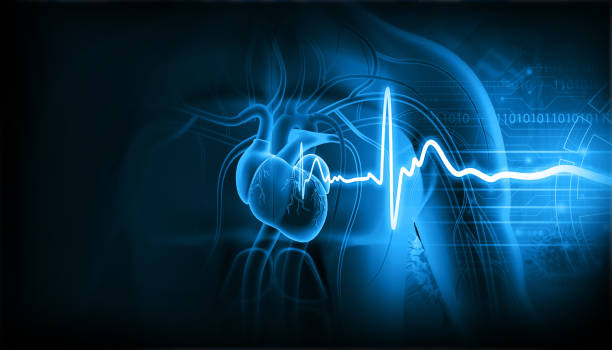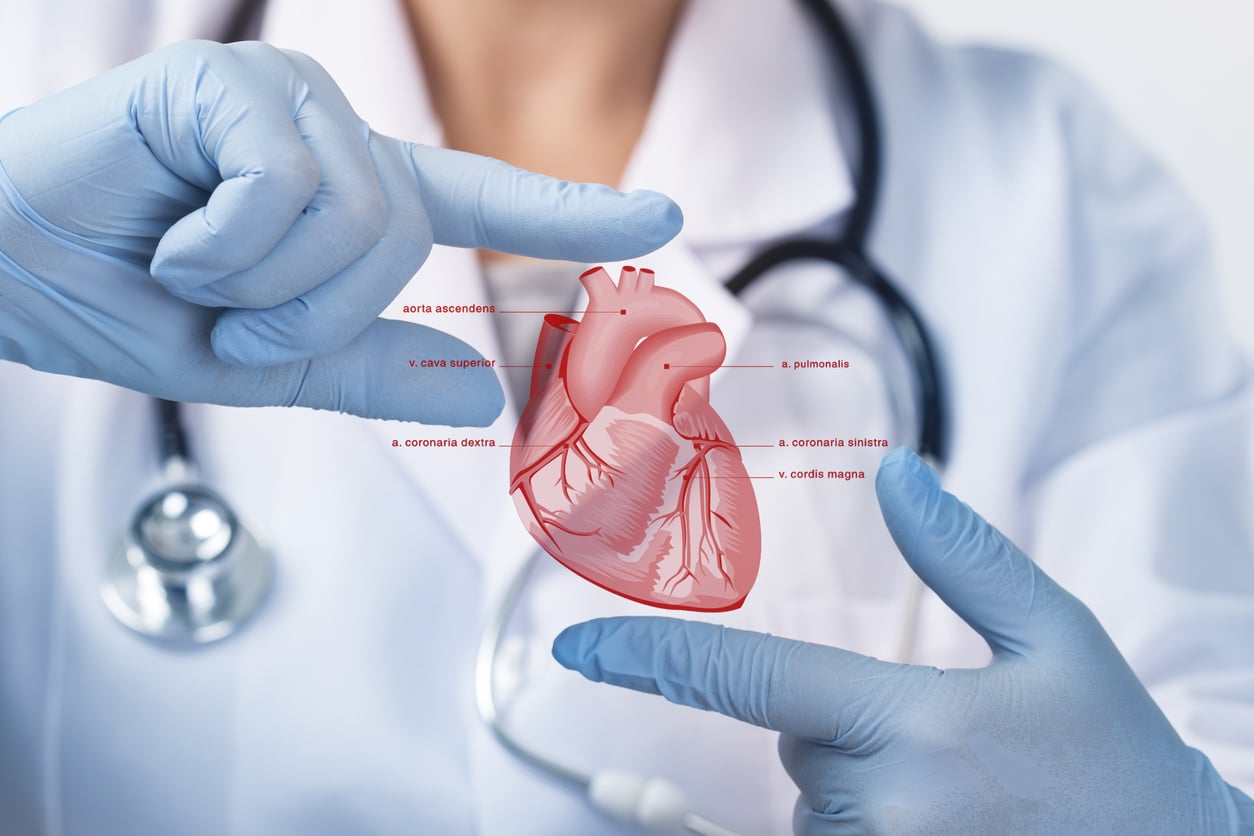Why heart-healthy eating matters: Cardiology care insights
Why heart-healthy eating matters: Cardiology care insights
Blog Article
Understanding the Relevance of Cardiology in Modern Medical Care Services
Cardiology plays an essential function in modern-day medical care, specifically as heart problem remains to be the leading reason for mortality worldwide. Advances in diagnostics and therapy have changed patient care, making it possible for earlier treatments and boosted end results. Additionally, the shift in the direction of preventative cardiology empowers people to manage their health and wellness proactively. As technology proceeds to evolve, the combination of ingenious remedies may additionally redefine cardiology's effect on public health, motivating a better examination of emerging patterns and their ramifications.
The Prevalence of Cardiovascular Disease and Its Effect On Public Wellness
Although cardiovascular disease remains the leading cause of fatality worldwide, its effect expands much past specific clients to influence public wellness systems and economic climates. The high frequency of cardiovascular disease puts a significant pressure on medical care sources, requiring raised financing for prevention, rehab, and therapy programs. Public health initiatives have to deal with danger variables such as excessive weight, smoking, and less active way of livings, which add significantly to the rising incidence of heart conditions.Moreover, the economic worry related to heart disease is enormous, incorporating not only straight medical costs but also indirect costs associated with shed performance and premature death. Areas face challenges in handling these expenses, often resulting in variations in healthcare gain access to and outcomes. As the population ages and lifestyle-related dangers remain to intensify, the necessity for effective cardiology treatments becomes paramount. Consequently, dealing with heart condition is not just a matter of individual health yet likewise an essential public health top priority.
Advances in Heart Diagnostics and Imaging Techniques
Current advancements in heart diagnostics and imaging methods have actually changed the area of cardiology, enhancing the ability to check and discover heart illness. Strategies such as heart MRI, CT angiography, and echocardiography have actually come to be significantly advanced, offering thorough photos of heart frameworks and features. These modalities permit for the early recognition of problems like coronary artery condition, heart failing, and valvular disorders.Moreover, developments in non-invasive diagnostics, such as wearable modern technology and remote surveillance devices, have actually encouraged individuals and health care service providers. These tools facilitate real-time monitoring of heart rhythms and other crucial indicators, causing prompt interventions. Additionally, expert system is being incorporated into imaging evaluation, enhancing precision and efficiency in medical diagnosis.
Technologies in Therapy Alternatives for Heart Conditions
Recent improvements in cardiology have actually led to considerable innovations in therapy choices for heart disease. These consist of advanced surgical methods that boost step-by-step results and emerging drugs that provide brand-new methods for treatment. As the area evolves, these developments play a vital duty in boosting client care and results.
Advanced Surgical Techniques
Advancements in surgical methods have actually changed the landscape of cardiology, offering brand-new expect clients with heart disease. Minimally intrusive treatments, such as catheter-based treatments, have greatly minimized healing times and health center keeps. Methods like robotic-assisted surgical treatment enhance accuracy, permitting doctors to navigate complicated anatomical frameworks with better accuracy. Furthermore, innovations in imaging innovation facilitate real-time visualization throughout procedures, improving outcomes. Transcatheter aortic shutoff replacement (TAVR) exemplifies an advancement in dealing with aortic stenosis, allowing valve replacement without open-heart surgery. Furthermore, hybrid techniques that combine catheter-based and medical techniques provide tailored services for numerous cardiac issues. These sophisticated surgical strategies not just enhance individual safety and security but additionally expand treatment options, highlighting the vital role of advancement in modern-day cardiology techniques.
Arising Therapies and medicines
As the landscape of cardiology remains to advance, arising treatments and drugs play a pivotal role in boosting treatment options for heart conditions. Advancements such as unique anticoagulants and progressed lipid-lowering agents have actually transformed the management of cardiovascular conditions, significantly decreasing patient morbidity and death. Additionally, the advancement of genetics therapies and regenerative medication supplies encouraging opportunities for treating problems formerly considered irreversible. Scientific tests are constantly exposing the efficiency of these treatments, pressing the borders of typical treatments. In addition, the integration of electronic wellness technologies helps with customized medicine, permitting customized treatment plans based on hereditary and lifestyle factors. Jointly, these improvements underscore the vibrant nature of cardiology, boosting patient outcomes and redefining requirements of care in contemporary health care.
The Duty of Preventive Cardiology in Individual Treatment
Precautionary cardiology plays a vital function in individual care by concentrating on the identification of threat elements that add to cardiovascular disease. Via lifestyle adjustment techniques and early discovery methods, health care suppliers can successfully decrease the occurrence of cardio events - Cardiologist near me. This proactive strategy not just boosts patient results yet also promotes lasting wellness
Threat Factor Recognition
While cardio conditions continue to be a leading cause of morbidity and mortality worldwide, effective risk aspect identification serves as a cornerstone of preventive cardiology. Identifying danger variables such as high blood pressure, hyperlipidemia, diabetes, and family background is crucial for early treatment. Health care professionals make use of different evaluating techniques to review these aspects, permitting customized safety nets. In addition, understanding an individual's lifestyle selections, such as smoking and physical inactivity, better notifies risk evaluations. This detailed assessment makes it possible for medical professionals to develop personalized treatment strategies aimed at mitigating threats. By prioritizing threat factor recognition, healthcare systems can boost individual end results and decrease the overall problem of heart diseases, ultimately adding to boosted public health and wellness techniques and source allowance.
Way Of Life Adjustment Approaches
A wide range of studies highlights the crucial function of way of living alteration strategies in minimizing cardio disease risk. These strategies incorporate nutritional modifications, raised exercise, smoking cessation, and weight monitoring. By taking on a heart-healthy diet plan abundant in fruits, veggies, entire grains, and lean healthy proteins, people can decrease cholesterol degrees and blood pressure. Normal exercise reinforces the heart and enhances total cardiovascular health and wellness. In addition, giving up cigarette smoking considerably minimizes the risk of cardiovascular disease and enhances recuperation prices for those with existing conditions. Weight monitoring additionally adds to cardio health by alleviating various other danger aspects such as diabetes mellitus and hypertension. Carrying out these lifestyle transforms not only advertises specific wellness but also functions as a keystone of preventive cardiology in patient treatment.
Very Early Discovery Methods
Way of life alterations greatly add to reducing cardio disease dangers, yet they are most effective when coupled with early discovery strategies. Precautionary cardiology stresses the value of identifying prospective heart concerns before they intensify right into serious conditions. Strategies such as blood pressure monitoring, cholesterol screening, and progressed imaging modern technologies like echocardiograms play vital duties in reviewing cardio health. Biomarkers and hereditary testing additionally improve the precision of very early discovery, permitting tailored preventive methods. Normal heart danger analyses encourage health care suppliers to interfere proactively, potentially stopping cardiovascular disease and strokes (Cardiology care). By integrating these early detection techniques right into regular care, clients can benefit from timely lifestyle treatments and targeted treatments, eventually boosting and improving outcomes quality of life
Integrating Innovation Into Cardiology Practices
As advancements in technology remain to reshape various areas, the integration of innovative tools and systems right into cardiology techniques has actually become crucial for boosting person treatment and end anchor results. Telemedicine platforms allow cardiologists to check individuals from another location, improving access to care while reducing the burden on healthcare centers. Wearable gadgets, such as smartwatches, allow continual heart rate surveillance, notifying both individuals and medical professionals to potential problems in real-time. Additionally, expert system (AI) is being utilized to assess vast amounts of cardiac information, helping in early medical diagnosis and personalized therapy strategies. Advanced imaging strategies, including 3D echocardiography, enhance visualization of heart frameworks, bring about much more specific treatments. Electronic health and wellness documents (EHRs) streamline patient details monitoring, ensuring that cardiologists have immediate access to vital information. Together, these technical improvements are changing cardiology, advertising positive monitoring and improved wellness results for individuals with cardiovascular conditions.
The Importance of Patient Education And Learning and Interaction
Client education and learning and engagement play a critical role in the management of cardio health and wellness. By gearing up patients with knowledge about their conditions, treatment alternatives, and lifestyle changes, healthcare service providers encourage individuals to take an energetic duty in their treatment. This proactive strategy can result in boosted adherence to recommended medications, dietary changes, and exercise routines, eventually minimizing the danger of complications.Engagement likewise cultivates a solid patient-provider connection, motivating open interaction and trust. When people feel educated and involved, they are most likely to voice problems and ask questions, which can cause far better professional end results. Furthermore, instructional resources, such as workshops or digital systems, can improve understanding and advertise self-management strategies. In general, prioritizing patient education and learning and interaction is necessary for enhancing cardiovascular health and wellness, improving lifestyle, and decreasing health care costs related to cardio diseases.
Future Patterns in Cardiology and Their Possible Influence

Frequently Asked Inquiries
What Way Of Living Modifications Can Reduce Heart Problem Danger?
The current question addresses lifestyle changes that can greatly lower heart problem danger. Cardiology. Taking on a well balanced diet, taking part in routine exercise, keeping a healthy and balanced weight, managing stress, and staying clear of cigarette can notably improve cardio health
Just How Can I Identify Early Signs of Heart Issues?
Recognizing early indicators of heart problems entails surveillance symptoms such as upper body pain, lack of breath, tiredness, and uneven heartbeat. Prompt awareness of these indications can prompt needed medical examination and intervention for far better outcomes.
What Are the Distinctions In Between Cardiologists and Cardiac Surgeons?
The distinctions in between cardiologists and cardiac surgeons hinge on their duties; cardiologists mainly take care of and identify heart disease through non-invasive techniques, while heart surgeons do operations to remedy architectural heart problems. Each plays a vital, distinct function.

How Frequently Should I Get My Heart Health Checked?
The frequency of heart wellness checks differs based on individual threat aspects. Typically, grownups must go through evaluations each to two years, while those with status quo may require even more frequent analyses as encouraged by healthcare specialists.
What Function Does Genetics Play in Heart Problem Risk?
Genes substantially influences cardiovascular disease danger, with familial patterns suggesting inherited problems. Specific genetics can predispose individuals to high blood pressure, cholesterol problems, and various other cardiovascular problems, highlighting the relevance of hereditary screening in reviewing heart health and wellness. Heart condition stays the leading reason of death globally, its effect extends far past individual clients to influence public health and wellness systems and economic situations. Public health my website efforts must attend to threat aspects such as excessive weight, cigarette smoking, and less active lifestyles, which contribute substantially to the rising incidence of heart conditions.Moreover, the financial worry associated with heart illness is immense, including not only direct clinical expenses yet additionally indirect expenses associated to lost performance and early death. Preventative cardiology plays a necessary duty in patient care by focusing on the identification of danger aspects that add to heart condition. Artificial intelligence (AI) and device discovering are boosting diagnostics and patient monitoring, enabling early detection of heart diseases. The differences between cardiologists and cardiac cosmetic surgeons lie in their roles; cardiologists mainly handle and identify heart conditions with non-invasive techniques, while cardiac cosmetic surgeons carry out surgical procedures to deal with architectural heart concerns.
Report this page